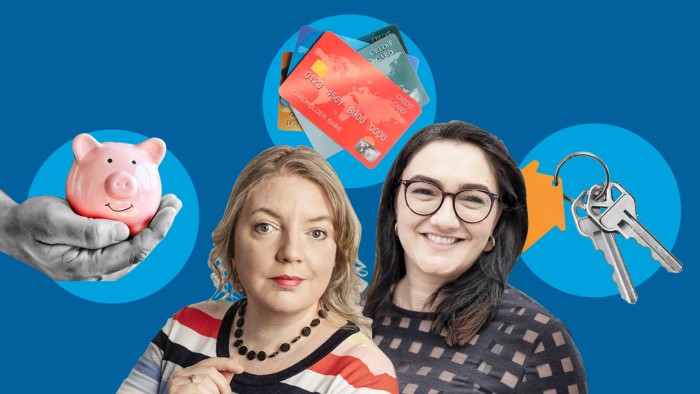How should we teach young people about personal finance? Q&A

Roula Khalaf, Editor of the FT, selects her favourite stories in this weekly newsletter.
How old were you when you learnt how credit cards work? What about when you learnt practical tips on how to budget, get a mortgage or navigate the world of student finance?
For many people in the UK, financial education is something we pick up as part of life, learning from our mistakes as we go along.
But the pandemic — and the financial uncertainty that has resulted — has highlighted the costly gaps in people’s knowledge. According to the World Bank, two out of three people globally are financially illiterate, including one out of three people in the UK.
Financial education was introduced to the UK’s national curriculum in 2014 but provision across the country still varies drastically.
Claer Barrett, the FT’s consumer editor, and Aimée Allam, the director of FT Flic, the FT’s Financial Literacy and Inclusion Campaign, answered your questions in the comments below this story.
Here are the highlights:
FT Commenter Tarma: We should be introducing finance and taxation as part of early, primary school education and onwards. Introduce the good reasons for understanding why we have money and how we use taxation in democratic society. Business and money are part of normal life.
Claer Barrett: How would you (or other readers!) suggest that we teach primary school-aged children about tax? Perhaps a deduction from weekly pocket money could be a good way of starting a conversation? When my stepchildren where at secondary school age, I showed them my payslip to educate them about tax — part of a wider conversation about why we need to vote to get a say in how our money is spent.
FT Commenter Iano: First, teach them the value of money. Make them understand what it takes to earn a pound. Stop giving them things for no effort! Make them understand what profit is, and what it takes to make a profit. Make them understand that what goes up can all ways go down, and save for the down times.
Aimmee Allam: Being paid for chores is a divisive one — I know that many parents expect a certain minimum of chores/household help to be done unremunerated and don’t want to foster the expectation of payment for everything. Personally, I’m pro payment for more out of the ordinary chores — eg a few pounds for cleaning the car whereas I’d certainly expect dishwasher loading/washing up to be done gratis. What policies do other readers have in their homes for chores? Also, how would you teach about profit and loss?
FT Commenter Tony Vonshee: I learned about money when I first earned it helping a relative who paid me for the chore. My Mother then took me to the bank to open a savings account. I gave the bank the money and they gave me my first bank book. When I was paid again for another chore months later we did the same thing. Only this time the banker made two entries in my book, one for the deposit and another for the interest. I am sure the banker explained interest to me but it did not matter, all I remembered was if I give the bank my earnings, they gave me a little bit more. This was at a time when savings earned interest. The best way to teach about money and finance is through experience.
Claer Barrett: That’s a really lovely story Tony — thanks for sharing. These early money memories are so crucial in influencing our future financial habits. We also think exploring these can really help people understand their emotional connection with money.
Do you want to read more questions and answers? The conversation happened in the comments below, so read on.
To learn more about FT Flic, get involved and donate to our appeal, please visit the website www.ftflic.com

Comments